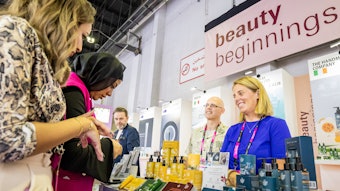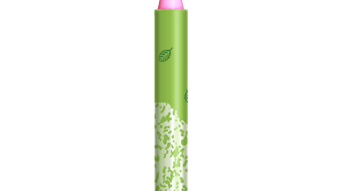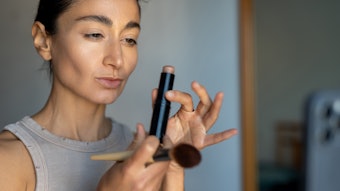A new video from Euromonitor International, “Beauty Companies Investing in Research Increase Likelihood for Growth,” has Euromonitor senior beauty and personal care research analyst Oru Mohiuddin discussing the 2013 second quarter results from beauty companies and seeing that companies focusing strictly on beauty rather than a diverse product portfolio are better poised for growth.
Mohiuddin says, “Results for 2013 started coming out, and what we see is not strikingly different from 2012. It is becoming more and more clear that manufacturers with more streamlined beauty focus are in better position to take advantage of the growth potential in the market, and this is because they’re able to dedicate more resources, at least in proportionate terms to R&D, to drive growth through product sophistication.
“Now let’s look at companies individually. I’ve looked at L’Oréal, Procter & Gamble, Unilever, Beiersdorf, Colgate and Estée Lauder and have tried to make it comparable by using [a] fixed exchange rate from 2013 in U.S. dollar values. In this group of companies, L’Oréal comes out at the top at 5% growth rate whereas Procter & Gamble’s performance was least favorable at -1%. This again drives home the fact that manufacturers with more exclusive beauty focus are able to do better.
“L’Oréal invests quite significantly in R&D, and in fact, the company has claimed to have developed 130 molecules in the last 40 years. No wonder its launches are based on scientific claims and breakthrough product development. On the other hand, Procter & Gamble is present in home care and beauty, and its resources are more diluted when it comes to investing in R&D. At the same time, it is competing with L’Oréal in the category of skin care and [it] has not been able to match the same level of scientific development as L’Oréal has been doing. So we see the results where L’Oréal is performing well and Procter & Gamble is not performing as well as expected.
“Now one can bring up the issue of Unilever. It has cross-industry presence but it is still doing well. Now, Unilever is slightly different to Procter & Gamble because Unilever specialized in commodities, such as bath and shower, deodorant and oral care. Traditionally, these categories have not been so much reliant on product sophistication to drive growth. However, going forward this may change because companies such as Beiersdorf and Colgate are targeting commodities categories to drive growth through product sophistication. Unilever’s model has been to consolidate its global operations and use that to roll out its existing brands to new markets and fill the gap in the pricing spectrum. But now, with competitive threats from Beiersdorf and Colgate, it may need to increase its investment in R&D to increase its claims of scientific development.
“The outlook for 2013 full year is less optimistic than that of 2012, and that is because emerging markets are slowing down and Western markets continue to be volatile. In the face of growing macroeconomic challenges, it’s all the more important to drive growth through product sophistication. This means manufacturers will have to invest in R&D and try and development new ingredients with new claims. So streamline beauty focus is not something that has helped to drive growth in past, but will become more and more prominent going forward,” she concludes.









![According to the Personal Care Products Council, 'Between 1990 and 2022, the [U.S.] personal care products industry generated a trade surplus every year, reaching $2.6 billion in 2022...'](https://img.gcimagazine.com/mindful/allured/workspaces/default/uploads/2025/08/adobestock-353393403.MryFiCWzOJ.jpg?auto=format%2Ccompress&fit=crop&h=191&q=70&w=340)
